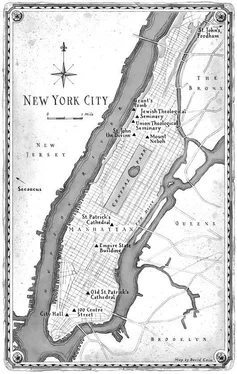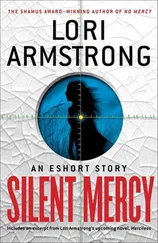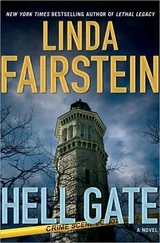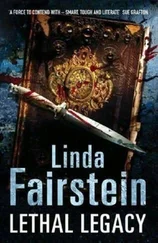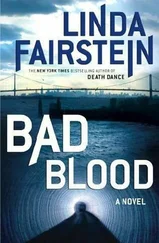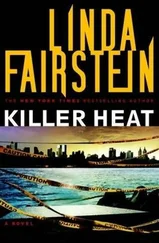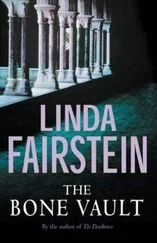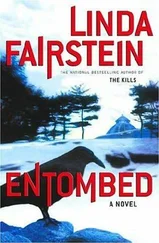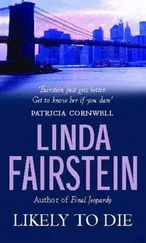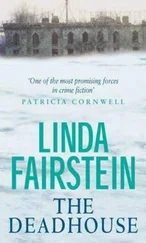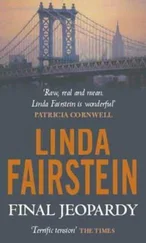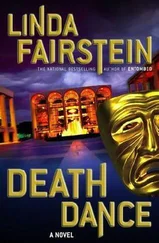Fairstein, Linda - Silent Mercy
Здесь есть возможность читать онлайн «Fairstein, Linda - Silent Mercy» весь текст электронной книги совершенно бесплатно (целиком полную версию без сокращений). В некоторых случаях можно слушать аудио, скачать через торрент в формате fb2 и присутствует краткое содержание. Год выпуска: 2011, Жанр: Триллер, на русском языке. Описание произведения, (предисловие) а так же отзывы посетителей доступны на портале библиотеки ЛибКат.
- Название:Silent Mercy
- Автор:
- Жанр:
- Год:2011
- ISBN:нет данных
- Рейтинг книги:5 / 5. Голосов: 1
-
Избранное:Добавить в избранное
- Отзывы:
-
Ваша оценка:
- 100
- 1
- 2
- 3
- 4
- 5
Silent Mercy: краткое содержание, описание и аннотация
Предлагаем к чтению аннотацию, описание, краткое содержание или предисловие (зависит от того, что написал сам автор книги «Silent Mercy»). Если вы не нашли необходимую информацию о книге — напишите в комментариях, мы постараемся отыскать её.
Silent Mercy — читать онлайн бесплатно полную книгу (весь текст) целиком
Ниже представлен текст книги, разбитый по страницам. Система сохранения места последней прочитанной страницы, позволяет с удобством читать онлайн бесплатно книгу «Silent Mercy», без необходимости каждый раз заново искать на чём Вы остановились. Поставьте закладку, и сможете в любой момент перейти на страницу, на которой закончили чтение.
Интервал:
Закладка:
Gaskin pointed a finger at Amos Audley, who answered, “Ain’t but a few that can unlock the front—”
“How many, exactly?”
“I said a few,” Audley snapped at Mercer Wallace. “I can’t give you a number. But there’s more than a dozen to the entrance on 114th Street, right by the pastor’s office.”
“A dozen people with keys?” Mercer repeated the number.
“Last I knew. The pastor hisself, his assistant, his secretary. Then there’s the choir director and his number two. A couple of parishioners who help with the finance business. Not sure who all else got them.”
“There must be a list?” Mike asked.
“Surely,” Gaskin said, “when the office opens in a few hours. We’ll get you that.”
“Have you had any problems recently? Any feuds that were brought into the church?” Mercer asked.
“Any psychos showing up to pray?” Mike added.
Wilbur Gaskin shook his head. “Nothing I’m aware of. Amos?”
“Not my business, Mr. Gaskin. Not none of my business who comes for the Lord’s word.”
Every now and then I could hear the footsteps of the detectives, climbing stairs to the choir loft or opening doors that led from the chapel. Audley’s head turned at the same sounds. The mass of keys on his belt clanged against one another whenever he moved. “You mind if I step out, Mr. Gaskin?”
“I’d prefer you stay close, Amos. You’ve got more answers than I do.”
“I understand that this church was built to be a synagogue,” Mike said. “You know anything about that?”
“You spend enough time here, it’s hard not to notice. It’s the story of most cities, Mr. Chapman, and of many houses of worship,” Gaskin said. “The population changes and the demographics shift. One ethnic group replaces another, one religious community takes over the temples the others left behind. It’s not so strange.”
“What was the synagogue called then?” I asked.
“In English, it was People of Mercy. I can’t properly pronounce the Hebrew,” Gaskin said, jotting the words “Ansche Chesed” on a piece of paper he withdrew from his pants pocket. “I don’t suppose any of you can read this or tell me if I’m right?”
“Give it a whirl, kid,” Mike said to me, explaining in the next breath. “She was ‘Cooperized’ at Ellis Island. Some really complicated name was totally neutered.”
“My father’s parents were Russian Jews,” I said. My mother’s Finnish roots revealed themselves in my blond hair and pale green eyes. She had converted to Judaism when she married my father, and although I was raised as a reformed Jew, I was embarrassed at how little of the Hebrew language — or religious tradition — I knew. “But I can’t help with this one.”
“That’s all right. I came by Gaskin the hard way too. My great-granddaddy’s owner made sure all his slaves took his name.” He winked at me, and I noticed that his eyes were nearly as light in color as mine. “But our church isn’t unique around here. Mount Olivet Baptist, that was a synagogue too. So was Cross Church of Christ, on 118th. Look around here a little more carefully.”
“I never imagined.”
“A hundred years ago, when this place was built,” Gaskin said, “Harlem was the third largest Jewish settlement in the world — in the world — after the Lower East Side and Warsaw. It was a thriving community dominated by Jewish culture and heritage. There are remains of it in buildings all over the neighborhood.”
The part of Manhattan known as Harlem ran east to west from river to river, and from 110th Street north to 155th.
“In 1910, we were only ten percent of the population here, Ms. Cooper. Twenty years later, the great migration started from the South. By the fifties, Harlem was ninety-eight percent black.”
“And the Jews?” Mike asked.
Wilbur Gaskin shrugged. “The diaspora continued. They moved once more. This time because they wanted to, not because they had to. To Riverside Drive, to Park Avenue, to the Grand Concourse, and up to Westchester. These churches — these magnificent synagogues — are the silent vestiges of their years in Harlem.”
Footsteps again, like a couple of cops were running inside the church. Audley was in the doorway, checking out the activity.
“Neboh,” Mike said. “What’s that?”
“One of the four holy mounts, Mr. Chapman. The Bible says it’s the place from which Moses first saw the Promised Land.”
“This girl wasn’t quite so lucky.”
“One more thing about our church, Detective, to confuse you further. Before we Baptists took it over, it had a short incarnation as a Roman Catholic sanctuary. I think that trifecta is true of only two institutions in Manhattan.” Gaskin went on in Spanish, “Iglesia de Nuestra Señora de la Medalla Milagrosa.”
“Our Lady of the Miraculous Medal,” Mike said.
Now there were loud noises, like men arguing in the sanctuary.
“Your Spanish isn’t bad,” Gaskin said, patting Mike on the shoulder.
“Can’t do homicide in this city without a smattering of español.”
I was ten years beyond cringing at Mike Chapman’s political incorrectness. But I wondered if the interim Catholic incarnation of the building did anything to influence Mike’s theory of why the body landed here.
A sharp voice shouted a command as a heavy door slammed shut.
“What’s the ruckus?” Mercer asked, following Amos Audley through the door.
Now I could hear many more footsteps. It sounded like cops were running through the building, along the south wall. I recognized Scotty Jaffer’s voice calling out that he wanted help in the basement.
Mercer broke past Audley, who was moving as fast as he seemed to be able to, and Mike sprinted after Mercer. I stood in the doorway with Wilbur Gaskin at my shoulder.
“Let it be,” Amos Audley called out, obviously distressed by the massing of officers, two with their guns drawn. “No harm there.”
“Bringing out four,” Jaffer called.
I could see a large oak door, and from the echoing sound of the detective’s voice, I assumed he was still downstairs.
Wilbur Gaskin panicked. He opened his cell phone and speed-dialed someone, starting to explain the situation in which he found himself at three twenty in the morning.
“Nice and easy,” Mercer said, holding both arms in front of him and backing away from the basement door toward the main sanctuary. “Come forward one at a time. Slow. Hands over your heads.”
The first to emerge was a young man in his early twenties. He was about my height, with a shaved and waxed head, dressed in a filthy sweatshirt, torn jeans, and unlaced high-tops.
Mercer’s calm seemed to be controlling the unexpected encounter. “Sit right there,” he said, pointing to a seat in the front row of pews.
“You know him?” I asked.
He covered the mouthpiece of the phone. “I’ve never seen him.”
“Put your guns down,” Mercer said quietly to the cops who flanked him. “Let’s get this done right.”
“Send out the next one, Scotty,” Mike said. He was always edgier than Mercer, a bit frenetic and pacing now, to distance himself from Amos Audley, who was muttering something at Mike’s back.
The second guy was heavier-set than the first, but just as unkempt and unhappy to be disturbed in the middle of the night. Mercer seated him a good distance away from his friend and directed two of the four cops to stand behind him.
It sounded as though there was some scuffling — and some physical urging by Scotty Jaffer — before the next trespasser came up the steps, lifting his head as he entered the large barrel-vaulted space.
“Dammit!” Gaskin said into the phone before he shut it. “It’s Luther again.”
Читать дальшеИнтервал:
Закладка:
Похожие книги на «Silent Mercy»
Представляем Вашему вниманию похожие книги на «Silent Mercy» списком для выбора. Мы отобрали схожую по названию и смыслу литературу в надежде предоставить читателям больше вариантов отыскать новые, интересные, ещё непрочитанные произведения.
Обсуждение, отзывы о книге «Silent Mercy» и просто собственные мнения читателей. Оставьте ваши комментарии, напишите, что Вы думаете о произведении, его смысле или главных героях. Укажите что конкретно понравилось, а что нет, и почему Вы так считаете.
